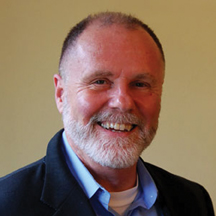 By Tom Moon, MFT–
By Tom Moon, MFT–
Psychologists have long known that there are two different kinds of values that motivate us to get out of bed in the morning. The first are called intrinsic values. These are the activities—like play, connecting with someone we love, or creative expression—that we do because we value doing them in and of themselves. It’s when we do these things that we forget ourselves in the “flow.”
The second kind of values, called extrinsic values, are the things we do, not because we want to do them, but because we believe we’ll get something in return, such as money, sex or increased social status. So, for instance, if you play the piano because you love to make music, that’s an intrinsic value. But if you also play music you don’t enjoy playing at a lounge in order to pay the rent, that’s an extrinsic value.
We’re all motivated by both kinds of values, but there’s a big difference between how the two kinds affect our level of happiness and well-being. Early in his career, psychologist Tim Kasser got subjects to keep detailed mood diaries as they pursued their goals. When he examined the reports, he found that people who achieved their intrinsic goals became less depressed and anxious, and also significantly happier. But when people achieved their extrinsic goals—the fancy new car, the promotion, etc.—they experienced no measurable change in their level of happiness. None whatsoever.
This should have been an earth-shattering finding, because the values of materialism, which dominate our culture and are relentlessly pushed by multi-billion-dollar media campaigns, are extrinsic values. Get good grades. Claw your way to the top of the heap. Show off your affluence through the conspicuous consumption of clothes, cars and expensive toys. That, we’re taught, is how to make ourselves feel good.
But Kasser’s findings demonstrate that materialism is essentially cotton candy for the soul: it’s all pink and fluffy and pretty, but completely devoid of emotional nourishment. Kasser has spent much of his career fleshing out these findings, and they’re summarized in his excellent book, The High Price of Materialism.
He reports, for instance, that the research shows that the more we’re driven by materialistic values, the shorter and shallower our relationships become. Of course. The more we think that the purpose of life is acquiring stuff, being superior, and showing off the symbols of our “success,” the more superficial our connections with others are, and the unhappier and isolated we become.
The more empty and unhappy we feel, the more we’re likely to try to soothe ourselves in the way that we’ve been taught—through ever more frantic pursuit of extrinsic, materialistic values. We live in a society in which powerful forces work to condition us to pursue junk values, and when we comply, our lives are damaged every bit as much as our bodies are damaged when we live on junk food.
The values that LGBTQ people celebrate Pride this month are all intrinsic values. We celebrate authenticity—the inherent joy of knowing who we are and of living our lives from the truth of our being. And we celebrate real relationships based on that authenticity, and communities that grow from and support these genuine relationships.
I bring up the subject of materialism this month because I think it’s important to remember that the enemies of Pride are not only the homophobic culture, but also the soul-killing materialism that pulls us all away from our authentic, intrinsic values.
How can we resist these forces in our individual lives? Kasser believes that the first step in becoming free of materialism is to come out of the unconsciousness that allows it to continue. He writes: “I can think of no wiser financial investment than in self-knowledge. It is the path to freedom, at many levels. By sorting through painful past experiences, irrational beliefs, and unacknowledged fears, people can become free of these chains and find healthier ways of coping than making money and consuming things.” The unexamined life, as Socrates said, is not worth living.
Tom Moon is a psychotherapist in San Francisco. For more information, please visit his website http://tommoon.net/
Recent Comments